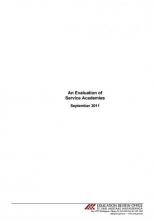Careers Information, Advice, Guidance and Education (CIAGE) in Secondary Schools
This is ERO’s first national report on CIAGE since The Quality of Career Education and Guidance in Schools in 2006. In this evaluation ERO examined the approach of 44 secondary schools to CIAGE.





